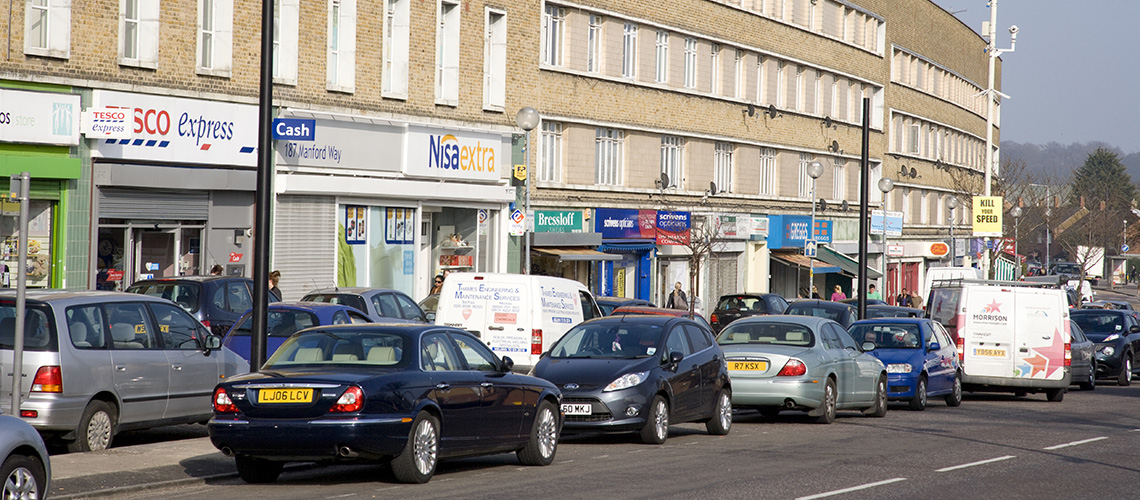Although all the Innovating Redbridge events inspired many forms of participation, I think the “Dragons Den: From CSR to Social Enterprise” was our most engaging event. The aim of this session was to engage various stakeholders (social enterprise leaders, community members, faith leaders, councillors and council officers) in a conversation about how we can improve our community and how engaging with social enterprises and businesses may improve community engagement.
Our ‘merry brigade of dragons’, social enterprise experts and leaders, gave us their perspectives on community and their efforts to add value to communities through their work. Listening to the speakers gave attendees a different perspective on community; as was shown in our group discussion.
Carl Adams, co-founder of Primal Roots, gave us a passionate speech on his journey from hospitality management and world travel into the world of Social Enterprise. Primal Roots is a social enterprise focused on the restorative power of fitness and nature as a tool to achieve improvements in health and wellbeing. Taking some of the most disenfranchised in our society and giving them their lives back through exercise and the outdoors. Carl taught us the importance of not being put off by failure and ensuring we keep pushing to improve our community. When we create or support a social enterprise it should be because it is the gold standard, this will ensure its sustainability, scalability and benefits for users.
Alexander Kenmure, Head of Business Development at Good Gym, spoke about his experience at GoodGym and how it has been integral in helping the people of Redbridge engage with one another. Creating new ways for different cultures, age groups and religions to integrate, whether its mission runs, coach runs or group runs, you cannot put a price on the 483 good deeds this social enterprise has provided. GoodGym is evidence of how there are creative ways for us to bring our community together and improve forms of engagement.
Steve Duggan worked in financial services for over 20 years and employed over 50 people before he was struck by personal trauma which negatively affected this business. However, Steve bounced back and is on track to start a new social enterprise with his experience in financial services, marketing and connections with community figureheads. He stressed the importance of the council collaborating with social enterprises rather than putting up barriers to develop participation throughout the borough, making an effort to become a hub for social enterprises.
Tom Gough is President of Manford Way Business and Community Partnership which organises public occasions. Events they have managed include HM The Queen’s Jubilees and birthdays and the annual lighting of the Christmas tree, to which around 1000 residents attend each year. He is an author of botany and horticulture, a Freeman of The City of London and a prolific gardener. Growing up in Clayhall he had a passion for helping the less fortunate and was drawn to Hainault in his pursuit to help those within his community. He spoke about the importance of not forgetting the impoverished whilst we try and strive towards becoming a modern borough. Taking into account the different groups within our community should be in the forefront of our mind whilst we strive for progressive change.
After each speaker gave us their perspectives on how we can improve the community, attendees were put into a group to answer questions. What are the problems and what intervention is needed? These questions get to the heart of many issues and allowed for the attendees to give us their view of the community and where they see it going.
When discussing the problems facing neighbourhoods the main themes that came up were: loneliness within the elderly, lack of youth activities, absence of communication between different demographics and a lack of variety in ways the council engages with all these groups. Examining these different themes, it became clear that there is a desire for greater variety in our outreach as a council. If we continue on our path a divide will develop between various demographics, especially different age groups.
When reflecting upon forms of intervention could be taken, the group focused on what our community members would like, as much as need. They considered general schemes that community members will engage with, such as food, music, sport, farming or technology. We need to produce/support social enterprises that appeal to people by having an exceptional offer, rather than just offering customers an inherent sense of good. The group also considered how wealthier members of our community should be included our broader plans of engagement. Engagement improves when people can support something they feel they’re benefiting from so there has to be mass appeal. Finding ways to remove the red tape from creative ideas would be a start, we could start making green spaces available for community use and finding resources to make the most of our streets. Without the red tape, Redbridge could become a hub for social enterprise, through for instance creating platforms which allow the community to develop their own ideas and coproduce solutions.
Redbridge is one of the most diverse boroughs in Britain and is expanding. This session highlighted the importance of us working closer with the community, and using varied approaches to engagement, to build community spirit and give a greater voice to the people. Whilst not forgetting to improve the relationship between different demographics to build on the spirit within our communities. The growth of social enterprises, volunteering opportunities and council events will inspire this as we try to break down those barriers and create a cohesive community.
“Coming together is a beginning; keeping together is progress; working together is success.” Henry Ford

 Dragons Den: from CSR to Social Enterprise
Dragons Den: from CSR to Social Enterprise
